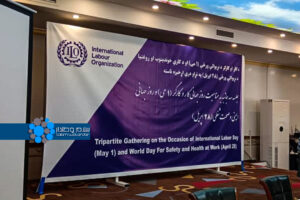MAIMANA (SW) – A number of Faryab residents say that the number of working street children in the province has increased for several years.
Sohrab, a 6 -year -old, who spends his day by painting the shoes of people in the city of Faryab, said he has to do so because of his family’s dire needs. He, who was a fifth grade student, said he wished to become a doctor one day, but because of the poverty, he has not been able to continue his lessons and has to forget the dream of becoming a physician.
Sohrab said: “When there was the were in the country, we came to Maimana. We got a house. My dad can’t work. He was a soldier. I work in the city, I work for 150 to 200 afghanis daily and take some bread home.”
Shafiqullah, a 5 -year -old, child who was immigrant to the city of Grazivan Faryab a few years ago, said he has not yet been involved in the school because of the worker. Living in a family of four, he said his father is also working, but the high cost of living, especially the price of food, has forced him to work to meet some of his family’s needs. He said: “I didn’t go to school,” Shafiqullah said. “Where would the food come from if I go to school? I would like to study and become an engineer if there is food at home.”
Nazar Mohammad, a civil activist in Faryab, said the wars of the past years have caused many children to lose their guardians in the province and come to worker in the city out of school. According to him, most of these children have come to Maimana from other districts of Faryab.
“In the wars, the orphans and the poor children have their parents and breadwinners lost,” Nazar Mohammad said. “Today, because of economic poverty, they are left out of education and displaced in the alley and the job market and begging.”
Faryab’s head of labor and social affairs, Basil Mutawakl, also expressed concern over the increase in working and begging children in the province, saying that the staff of the department, in collaboration with aid institutions, are trying to provide for the children who have lost their father.
Mutawakl added that work on re -activation of orphanages is going on and in the near future, children will be collected from the city and will be sent to these orphanages. “We shared this idea at the monthly meetings with the relevant offices and try to create a good synergy between cooperative offices and government agencies so that we can protect orphans well,” he said.
While there is no accurate statistics on working children in Afghanistan, but earlier, the United Nations Child Support Fund (UNICEF) said in reports that more than a million children in Afghanistan were working.
ENDS






